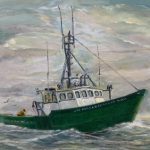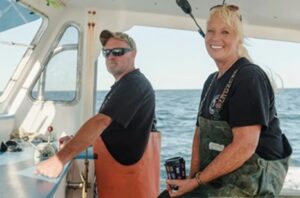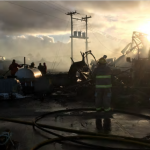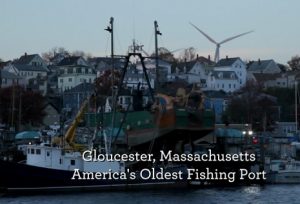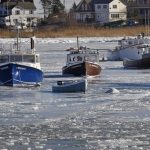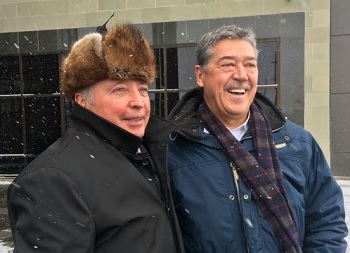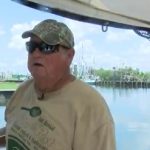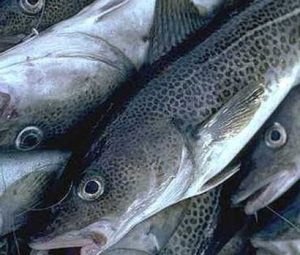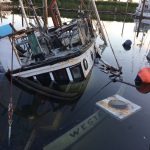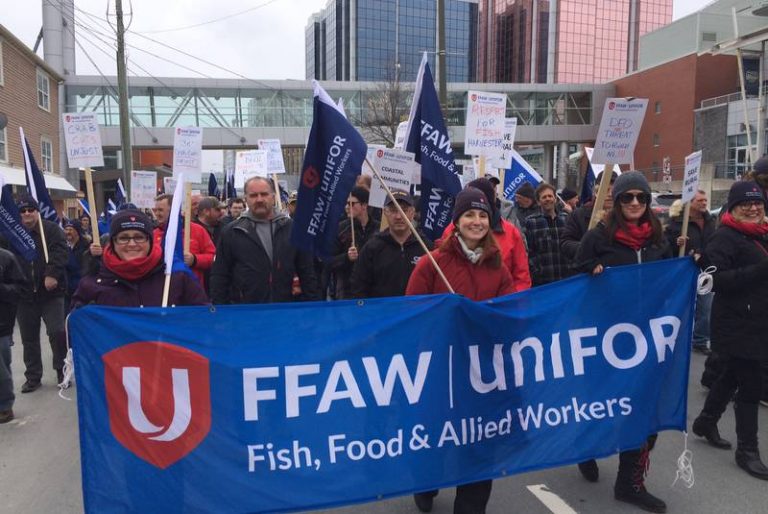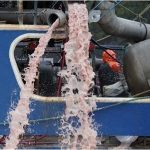Tag Archives: California Department of Fish and Wildlife
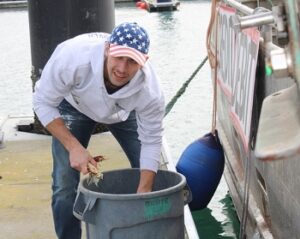
Five Days In, Crescent City Fishermen Continue To Pull Up Empty Crab Pots
“It’s a bleak year”,,, After a delay initially due to poor quality crab and later because of price negotiations with seafood processors, Del Norte County fishermen and others on the North Coast were able to pull their crab pots at 8 a.m. on Saturday. But four hours into the season, when dock workers and fishermen should have been offloading the first of their catch, Citizens Dock was still quiet.,, Since fishermen went to work, Pacific Choice Seafoods and other processors raised the price they were offering to $4 per pound,,, >click to read< 07:32
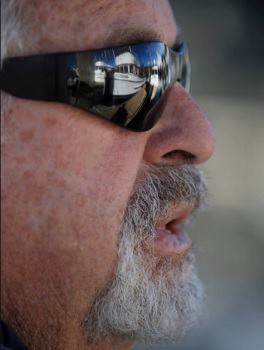
California: Don’t expect Dungeness Crab for Christmas this year
“Unless a miracle happens, which is highly unlikely, we won’t see crab for Christmas,” said Tony Anello, a veteran fisher who runs his boat, the Annabelle, out of Bodega Bay and offers up his tender product at Spud Point Crab Co. After several years of varied setbacks and more than a month of delays to the 2020 Dungeness season, local crabbers now face a new hurdle as they haggle over price with large wholesalers. “We should be traveling right now,” Dick Ogg,,, wholesalers are asking skippers to cut their prices by 30% to 35%, leaving both sides approximately $1 a pound apart from an agreement that would start the crab season. >click to read< 08:05
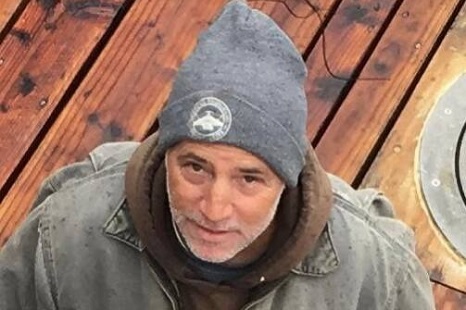
Ben Platt: Whales aren’t at risk from crab fishing along California’s coast
Anyone who lives in or near California’s many historic fishing communities like Morro Bay, Monterey, or Half Moon Bay, has probably heard the term “ropeless” crab fishing gear. That’s the new buzzword for equipment being promoted by environmental groups to solve the perceived problem of whale interactions with fishing gear.,,, Both the East Coast Lobster fishery and the West Coast Dungeness crab fishery, each of which are made up of thousands of independent fishermen, have tested the pop-up “ropeless” gear and found it to be faulty. Meanwhile, strikes by large ships likely cause 50-150 whale deaths a year off the West Coast,,, >click to read< 07:31
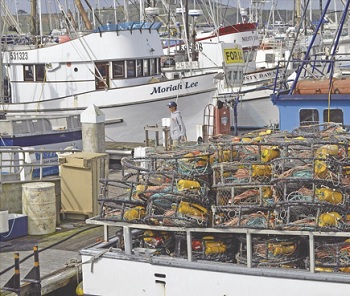
Extended delay – Commercial Dungeness Crab fishing ban extended until Dec. 16
The California Department of Fish and Wildlife extended the delay of commercial crab fishing Nov. 24 from Point Arena down to Mexico after it spotted whales in crab fishing grounds. Scott Edson fishes in Half Moon Bay and isn’t surprised by the delay extension until Dec. 16. He expects the current delay to last even longer. Edson said the delays are a disaster for commercial fishermen trying to survive during a tough season and a pandemic. Increased delays cost him money in an already limited season,,, >click to read< 08:59
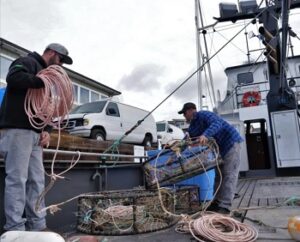
Monterey Bay Fishermen hit with new wave of Dungeness crab season delays
You couldn’t blame crab fishermen Tim and Dan Obert for feeling like they’re passing through the perfect storm. First there was the pandemic, which shut down restaurants and, in turn, much of the demand for Dungeness crab. Then a new regulation took effect on Nov. 1 that heavily restricts the Dungeness fishery’s operations when whales and sea turtles are around. Then the state delayed the opening of the Dungeness crab season until after Thanksgiving. “If you take all three of those things, you will destroy this fishery,” said Tim Obert, 35, of Scotts Valley. “There will be no crabbers left.” >click to read< 08:47
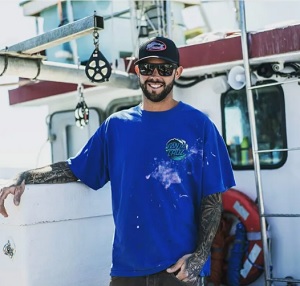
Local Dungeness crab fishermen oppose new fish and wildlife regulations
The regulations are a product of concerns surrounding how often whales and other endangered species are getting caught in the ropes used to fish crabs. The regulations were met with some resistance from the local fishing community. However, conservationists argue the rules will do more good than harm to wildlife. Tim Obert, a fisherman, strongly opposes,,, “You’re driving down the street and you accidentally run over a squirrel or maybe you hit a deer on a mountain road, it doesn’t mean you go park your car in the garage and never turn it on again or never leave your house,” he said. Ben Platt, the President of the California Coast Crab Association, also opposes the regulations,,, >click to read< 08:13
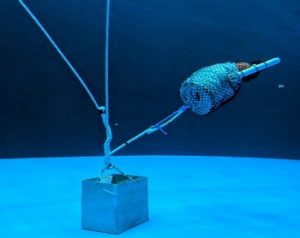
California crab fisherman are concerned the so-called ‘ropeless’ fishing gear, is not the answer
Is the so-called “ropeless” fishing gear the silver bullet for solving the perceived problem of marine mammal interactions in California’s crab fisheries. Several profit-driven environmental groups, including Oceana would like the public and the California Department of Fish and Wildlife (CDFW) to believe these baseless claims. That’s because these groups are ramping up efforts to force California’s historic and economically most important fishery – which helps create millions of dollars annually for working families – to adopt expensive, impractical and unworkable new fishing gear, which would force most crab fishermen out of business. By Johnny Atkinson >click to read< 15:33
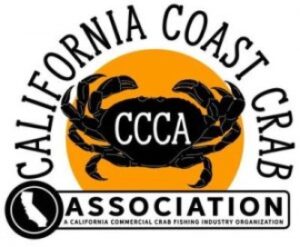
Punitive New Rules Will Crush CA Dungeness Crab Fishing Families, Threaten Holiday Crab Traditions
This week, the California Department of Fish and Wildlife (CDFW) put into effect onerous new regulations that among other things, could delay or close the state’s iconic crab fishery if whales are present near the crab grounds and could economically devastate our coastal communities that rely on the fishing and seafood industry. Called the Risk Assessment Mitigation Program (RAMP), these punitive rules also include triggers for crab fishery closures that are more restrictive than even the strictest fishery laws in the nation, the Marine Life Protection Act (MLPA) and the Endangered Species Act (ESA). “Regulators seem to be more concerned about the optics in the media of the rare occurrence of an entangled whale than the fact that the populations of these marine mammals, which migrate off our coast, are skyrocketing, and may soon be eligible for removal from the Endangered Species List,” said Ben Platt, president of the California Coast Crab Association (CCCA). >click to read< 10:02

CDFW: Commercial crab season will be delayed due to the presence of whales
The commercial Dungeness crab season in the central management area, which was scheduled to open Sunday, Nov. 15, will be delayed due to the presence of whales within fishing grounds and the potential for entanglement.,, “While no one wants to delay the season, CDFW and the Working Group feel a delay is necessary to reduce the risk of entanglement,” said CDFW Director Charlton H. Bonham. “The fleet has gone to great lengths to be more nimble in order to protect whales and turtles, and the results are promising. This year for the first time in a long time it looks like we don’t have to worry about domoic acid, which is good news.” >click to read< 15:05
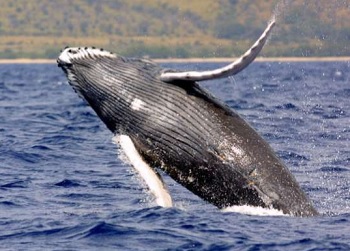
California crabbing rules a concern says North Coast fisherman
Local crab fisherman Mike Cunningham said he’s spoken with fishermen across the West Coast who take issue with the new rules. “We always look to avoid entanglements with whales,” Cunningham said. “The biggest problem (with the new rules) is that they are talking about closing massive areas to fishing. You could have an entanglement problem near Monterey, and the director (of Fish and Wildlife) could close the waters from Monterey up past Humboldt.” There are six fishing zones along the state’s coast. “The director now has the authority to do anything at any time,” Cunningham said. “Now, sometimes, it may just be a fleet advisory or warning, but it could go all the way to closing the entire coast to crab fishing.” The new rules stem from a lawsuit filed against the state by the Center for Biological Diversity, settled in 2019, >click to read< 19:48
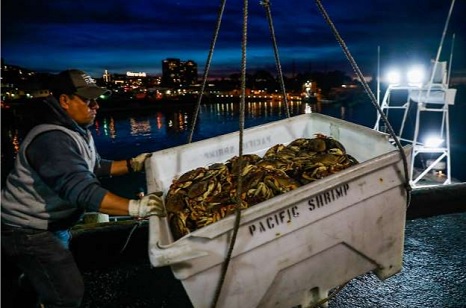
Dungeness crab season might not open for Thanksgiving again
New state regulations may mean that Dungeness crabs won’t be in stores in time for Thanksgiving. The rules, aimed at preventing entanglements “I want to make sure it’s understood what kind of effort we’re putting into it as fishermen and how effective we’ve been,” said Dick Ogg, a Bodega Bay fisherman and a member of the California Dungeness Crab Fishing Gear Working Group that developed the rules. He said that fishermen have worked hard to make sure their gear is set up better to lower risk. “We’ve really reduced our interaction and entanglement rates.” Ogg said there is a lot of anxiety in the fishing fleet about what will happen with the coming season and whether they should start gearing up for a Nov. 15 opening or whether it will be delayed. >click to read< 10:01
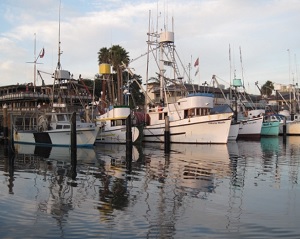
CARES Act: California Fisheries Relief Funding Soon to be Available for Select Sectors Affected by Coronavirus
Coastal and marine fishery participants – including licensed commercial fishermen, fish buyers, aquaculture businesses, charter boat owners and guides – who have experienced a loss of income due to the effects of COVID-19 may be eligible for federal relief funding disbursed through the California Department of Fish and Wildlife (CDFW). The funding is part of the federal Coronavirus Aid, Relief and Economic Security (CARES) Act. This more than $2 trillion economic relief package provides direct economic assistance for American workers, families and small businesses that have been impacted COVID-19. About $18 million in CARES funding was earmarked specifically for fisheries assistance in California. >click to read< 12:07
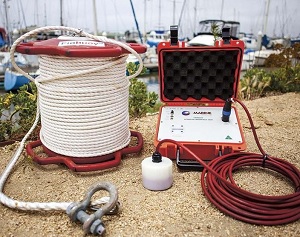
Ropeless gear is not the silver bullet – New technology promises to save the whales by reducing the need for crab fishing lines.
“We are working with fishermen to see what works and what doesn’t and what allows the fisherman to survive economically,” says Geoff Shester, a Monterey-based scientist with nonprofit Ocean. In June, the Ocean Protection Council awarded $500,000 for the testing of pop-up gear in the coming fishing season. The money will pay for five prototypes, including designs by Marina-based Desert Star Systems and Watsonville-based McFarlane Marine Services. The money will also go to fishermen participating in the research. A new crab industry group, California Coast Crab Association, is pushing back. Its president, Ben Platt, described the RAMP regulations as “an existential threat to our livelihoods”,,, >click to read< 08:39
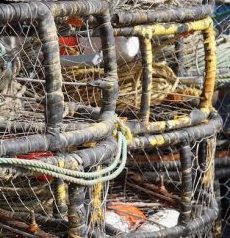
California plans to protect whales from crab traps rankle all sides – one thing was clear, no one’s happy.
Stakeholders on both sides of the aisle had complaints — environmentalists don’t think the protections go far enough, while industry groups say the regulations threaten the economic viability of the crab fishing industry. Set to take effect Nov. 1, the California Department of Fish and Wildlife’s Risk Assessment Mitigation Program (RAMP) will serve as the primary mechanism for mitigating entanglement risk to humpback and blue whales and leatherback sea turtles whose populations are endangered and could suffer additional casualties due to getting caught in Dungeness crab fishing gear. The regulation would replace the interim authority given to the director of the Department of Fish and Wildlife,, >click to read< 09:13
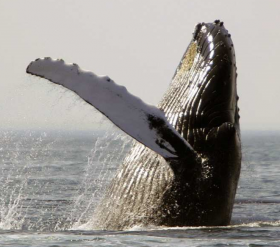
Crab Command and Control – California Dungeness Crab Fishing Gear Working Group
“Whales getting entangled in fishing gear is a huge crisis,” says John Mellor, a commercial fisherman and a member of the working group since its inception. “It has to be dealt with, and dealt with in real time.” Once or twice a month during Dungeness crab fishing season, which normally runs from November 15 to July 15, scientists in the working group conduct a series of mini research projects looking at four risk factors for entanglements: how many whales and sea turtles are around, where whales are likely to forage, the number and locations of recorded entanglements, and information about fishermen, including their landing data, license numbers, and the locations of their traps. >cxlick to read< 08:35
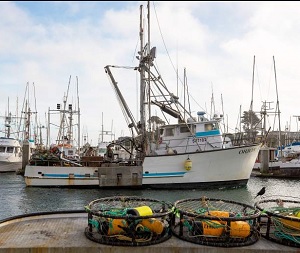
New rules for California Dungeness crab fleet
The California Department of Fish and Wildlife on Friday unveiled a batch of complex new rules designed to reduce the risk to endangered whales and sea turtles of becoming entangled in commercial Dungeness crab fishing gear. The draft regulations are set to be finalized before the next commercial season starts in November after a period of public review. Among the provisions are options to restrict fishing in certain depths, require crabbers to set only a share of the traps for which they’re permitted or limit intervention to any of six newly established geographic zones, rather than the larger Northern and Central California management districts that currently exist. >click to read< 09:14
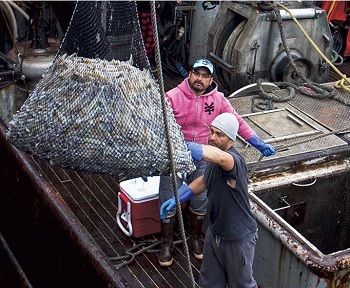
Squid fishing season is off to a good start in Monterey Bay after a dismal 2019.
The 2020-2021 commercial squid fishing season started on April 1 and dozens of boats can be seen dotting the horizon of Monterey Bay as the squid return, this year in better numbers. “This has actually been one of the best Aprils we’ve had since 2010,” says Pete Guglielmo, a buyer and processor with Southern Cal Seafood, Inc. “Usually when the squid show up this early in the season, it’s proved to be a very good fishing season for the industry.” The squid are also larger than they’ve been in the last several years, and in high demand. >click to read< 09:04
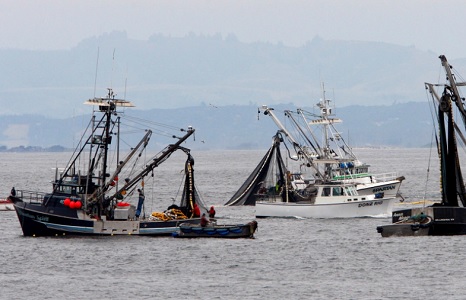
Squid are back in abundance in Monterey Bay
The squid fishery is among the most lucrative and productive in the state, frequently valued in the double-digit millions. According to the California Department of Fish and Wildlife, landings from California market squid (Doryteuthis opalescens) were over 34,000 short tons in the 2018-2019 season, generating more than $33 million in revenue. But according to Diane Pleschner-Steele, the executive director of the California Wetfish Producers Association, these charming and elusive animals can be difficult to pin down. The statement has proven true in the last couple of years. Spawning squid are targeted because they die shortly after they reproduce, and so fishing season — though technically open all year round — coincides with the spawning season. The catch is historically best in Southern California in fall and Central California in spring-summer. >click to read< 10:35
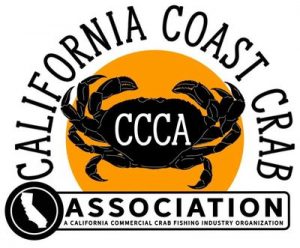
Dungeness Crab Season Closed Early Due to Dubious Whale Crisis, COVID-19 Economic Impact on Coastal Communities Made Worse by Closure
The California Department of Fish and Wildlife (CDFW) today announced that effective May 15, 2020, the commercial Dungeness crab fishing season, which began in December, will be closed due to the perceived risk of commercial crab fishing gear harming migratory whales. Ironically, as a result of ongoing cooperative measures between the California Dungeness crab fishing fleet and CDFW, interactions between Dungeness crab fishing gear and the two subgroups of Humpback whales, or Distinct Population Segments (DPS), which are “endangered” and “threatened” under the Endangered Species Act (ESA) are extremely rare. “The risk of crab fishing gear harming endangered whales is statistically insignificant because of low concentrations of whale, as well as the relatively small amounts of gear being deployed along the Central California coast,” said Ben Platt, president of the California Coast Crab Association (CCCA). >click to read< 12:26
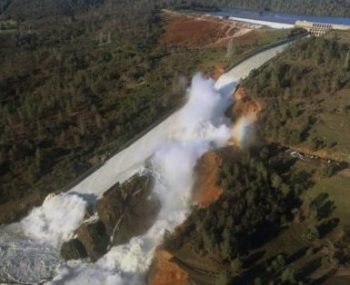
CDFW’s Salmon Evacuation Decision Pays Exceptional Dividends
In February 2017, damage to the Oroville Dam’s spillways prompted the evacuation of more than 180,000 people living downstream along the Feather River. The raging muddy waters also triggered an emergency decision to relocate millions of young salmon from the Feather River Hatchery to the Thermalito Annex Hatchery to be raised and held until river water conditions improved. Most, if not all, of the young salmon would have otherwise died when mud from the raging river overwhelmed the hatchery waters. >click to read< 08:39
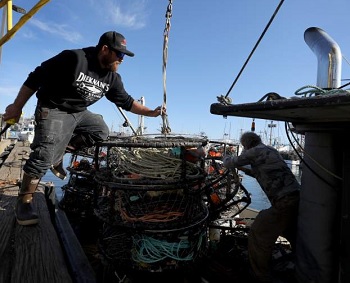
California agrees with crabbers to postpone Dungeness crab season
Bodega Bay’s commercial fishing fleet succeeded Wednesday in persuading state wildlife officials to postpone the opening of Dungeness crab season to safeguard protected whales species still lingering in the fishing grounds. In a move at the behest of the crab industry, Chuck Bonham, the state fish and wildlife director, agreed to push back the season opener to Dec. 15. Crab fishing was slated to open Friday along the coast from Sonoma to San Mateo counties. The decision is subject to two days of public comment ending Friday afternoon. >click to read< 07:17
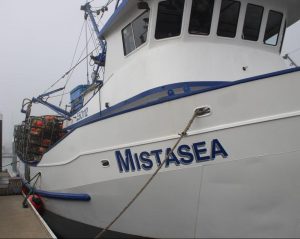
Dungeness Crab season’s delay causing instability
Randy Smith stood on the harbor sidewalk talking with a group of fellow fishermen, their large commercial fishing boats – piled high with empty crab traps – swaying at the docks. They had hoped to be fishing by now, but instead are left deciding where to go. Smith’s crew of five had planned to fish in their home waters during the holidays, but with the crabbing season delayed, they’re preparing for two months down south in his boat, the Mistasea. >click to read< 06:48
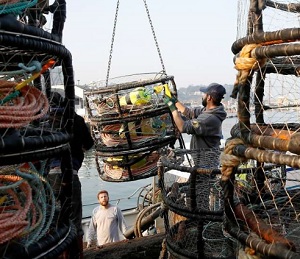
Dungeness crab season may be delayed
The California Department of Fish and Wildlife made the announcement Friday in response to a settlement with an environmental group over whale entanglements in commercial Dungeness crab fishing gear.,,, Even if the eight-day delay to the commercial season happens, it should not disrupt the Bay Area tradition of cracked Dungeness crab on the Thanksgiving table, said Noah Oppenheim, executive director of the Pacific Coast Federation of Fishermen’s Associations. However, it would cut into a peak period for the local fishing fleet, >click to read< 08:02
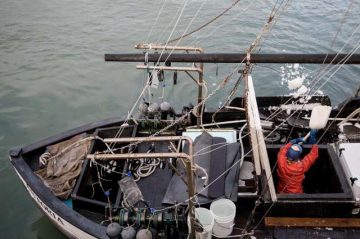
California fishermen report the biggest salmon season in a decade
California commercial fishermen are reporting the biggest king salmon season in a decade, on the heels of three years of disastrously low catches because of the drought. The sudden bounty has resulted in a price drop for the coral-pink, fatty fillets to $20 per pound in many markets, down from the $30- to $35-per-pound range of recent years. “You might say this is the old normal, because we’ve been so used to catastrophe,” said Noah Oppenheim, >click to read<19:37
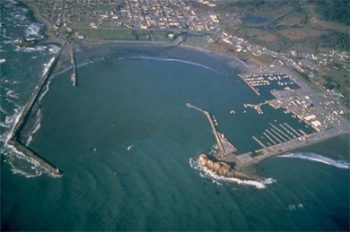
Commercial salmon season starts in Crescent City
Commercial salmon fishermen in Crescent City began their season on Saturday with a quota of 20 chinook per day and a monthly quota of 2,500, according to Crescent City Harbor Commissioner and Del Norte Fisherman’s Association president Rick Shepherd. The 20-fish-per-day quota and monthly quota of 2,500 applies to trawlers fishing between the Oregon border and the Humboldt South Jetty, said Shepherd, whose boat is one of roughly six in Crescent City that fish for chinook. The fleet is able to ply its trade on the ocean five days a week Friday through Tuesday. While a few fish have been brought into Eureka, so far no one has brought any salmon into the local harbor, Shepherd said. >click to read>07:50
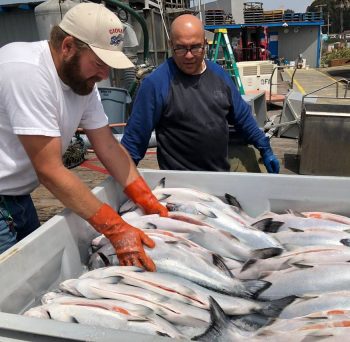
Epic catch brings tons of fresh fish to the Central Coast
Salmon are running in epic numbers this year off the Central Coast, and that means lots of fresh fish for commercial fishermen and hungry customers.
This year’s salmon season, which started commercially on May 1, is the best local fishermen have seen in 20 years. “It’s like Christmas for us,” DeGarimore said. “This is the biggest salmon catch we’ve had in the past two decades. We’re all really excited to see the boats coming in. Tourists are taking photos. Salmon are beautiful fish, and they make spectacular fillets. >click to read<15:14
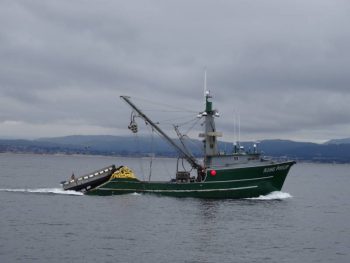
PFMC Officials: No Sardine Fishing Off California This Year Due to Steep Population Decline
West coast regulators have voted unanimously to ban commercial sardine fishing for the fifth straight year after a recent evaluation of the northern Pacific stock revealed a steep decline. The ban on commercial sardine catch spans the entire length of the U.S. West Coast.,,, A new assessment of northern Pacific sardine stocks by the National Oceanic and Atmospheric Administration (NOAA).,,, Not all fishermen agree with the decision to keep the sardine fishery shuttered. Diane Pleschner-Steele, executive director- California Wetfish Producers Association, said NOAA’s sardine survey under-counts the fish, and that the fishermen she hears from are noticing a comeback. >click to read<10:59
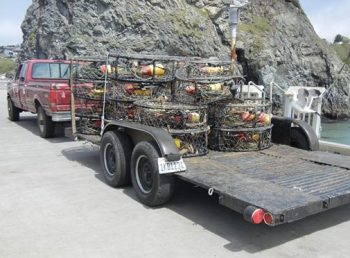
‘We Were Blindsided:’ Crab Fishing Closure Could Mean Millions in Losses
At the April 9 Humboldt County Board of Supervisors meeting, the security check-in station resembled a metropolitan airport with a long line of people stretched out the courthouse doors and halfway down the stairs to Fifth Street. All seats in the chamber were filled, the space between the chairs and the wall was filled with people standing, and others waited outside the door for a chance to speak. The source of the commotion was a sudden and unexpected closure of the Dungeness crab fishery. The California Department of Fish and Wildlife had ordered all crab fishermen throughout the state to remove their gear from the ocean by April 15. >click to read<14:40
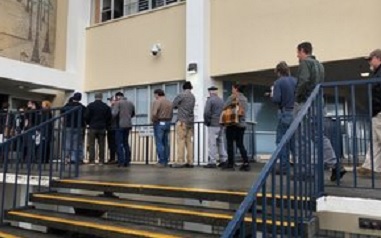
At Humboldt County Board of Supervisors – Blindsided Crabbers Congregate
As the Humboldt County Board of Supervisors meeting got underway at its normal 9 a.m. start time, there was still a line of people extending out the front door,,, local crab fishermen who had shown up in force to support a resolution aimed at saving the local fishery from “devastating economic harm,” The threat comes in the form of a recent CBD – PCFFA settlement,,, “We were blindsided by this ruling,” said crab fisherman Zach Rotwein of Trinidad.,,, Pacific Choice Seafoods General Manager Rick Harris said his company recently made a $1.2 million investment,,, “This is a travesty and a disaster for the community,” said crab fisherman Patrick Davis, who owns two fishing boats and employs “eight or nine guys.” >click to read<22:49
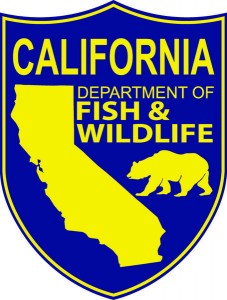
California – Commercial Dungeness Crab Season to Close Statewide April 15
California Department of Fish and Wildlife (CDFW) Director Charlton H. Bonham issued a declaration to close the commercial Dungeness crab fishery statewide at 11:59 p.m. on April 15, 2019 due to increased whale entanglement risk anticipated for the spring and summer months. ,,,, Therefore, the Director has declared that the commercial Dungeness crab fishery will close at 11:59 p.m. on Monday, April 15, 2019. For more information >click to read<10:08

































